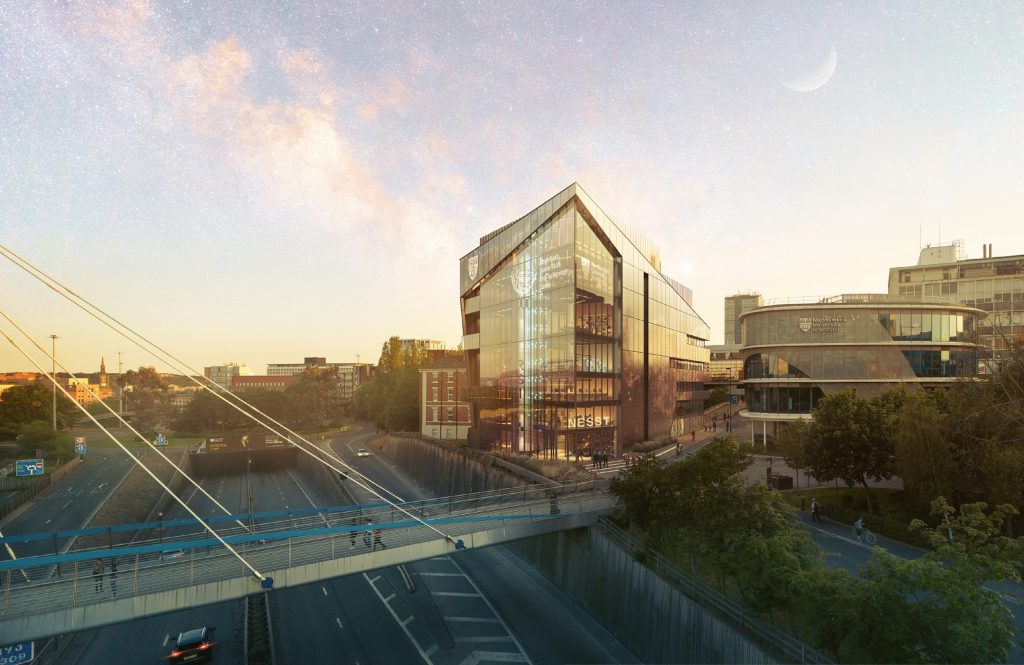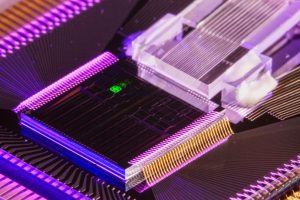Awards from the UK Space Agency and Lockheed Martin have been match-funded by the University to create the North East Space Skills and Technology Centre.
The centre, which will be known as NESST will support the creation of over 350 jobs and inject over £260 million into the North East economy over the next 30 years, becoming a catalyst for the wider development of the UK space sector in the North East region.
“This is a pivotal moment, not just for Northumbria University, but for the wider North East region and indeed, for the UK space sector as a whole,” says the university’s vice-chancellor Prof Andy Long, “NESST will be a game-changer for the North East, ensuring the region becomes a major hub for innovation in the space economy.”
Announced during the UK Space Conference, the UK Space Agency has awarded £10 million to Northumbria University to support the development of NESST. In addition to this, Lockheed Martin committed a further £15 million investment in NESST to work with the university on collaborative research, technology development, in-demand skills provision and STEM engagement activities over a 10-year period.
Lockheed Martin will become the first anchor tenant in NESST, creating links for UK companies to access the space market.
Northumbria University confirmed it would match-fund the UK Space Agency and Lockheed Martin awards with a further £25 million, bringing the overall total investment in NESST to £50 million.
Located in Northumbria University’s Newcastle city campus, NESST will bring together industry and academia to collaborate in areas including optical satellite communications, space weather and space-based energy, and will provide specialist education and training to ensure the UK space sector has the highly skilled workers it needs in the future.
Lockheed Martin and Northumbria University first joined forces in 2022 to support the development of skills, research and technology in the space sector. Lockheed Martin has previously invested £630,000 into collaborations with the University on a number of projects, including creating machine learning algorithms to detect and record nanojets and accelerating the use of space-based solar power.
Its award of £15 million will be split evenly across capital equipment to be used in the centre and research and development work.
“NESST is one part of Lockheed Martin’s investment plans for our space business in the UK and will provide early prototyping and test facilities for new capabilities that could eventually be manufactured onshore,” says Lockheed Martin’s Nik Smith, “it will also be a reskilling hub, providing the pipeline of talent we will need to deliver national and even global programmes.”
The UK Space Agency award to Northumbria was the maximum amount that could be granted under the agency’s Space Clusters Infrastructure Fund (SCIF) – an initiative aimed at increasing the capability, capacity, and connectivity of the UK’s space research and development infrastructure.

The University’s Wynne Jones building, which overlooks Newcastle’s central motorway, will be transformed into a prominent, home for NESST (pictured: artist’s impression).
The building, which is due to re-open in 2025, will feature laboratory, testing, teaching, collaboration and office spaces.
A stimulus to the local space cluster ecosystem, NESST will be home to some of the University’s existing partnerships with local, national and international organisations and will also be open to businesses of all sizes working in the space sector.
 Electronics Weekly Electronics Design & Components Tech News
Electronics Weekly Electronics Design & Components Tech News



